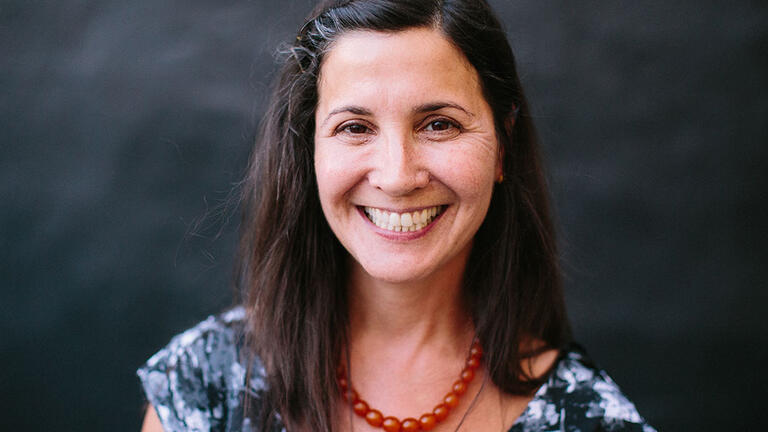Meet the Faculty: Dr. Emily A. Nusbaum
Dr. Emily A. Nusbaum has made it her life’s mission to challenge the deficit-based notion of disability, both in our cultural context as well as in education.
After receiving her MA and teaching license at Boston College, Nusbaum found herself inspired by her early work with the first fully inclusive general and special education school in Boston. From that point Nusbaum dedicated herself professionally to dismantling the traditional understanding of “special education” and the traditional classroom approaches associated with it. Her commitment to students with disabilities deepened while she served as an Inclusion Facilitator for SFUSD, and afterwards while she participated in advocacy and litigation work with families of students with disabilities. It was in that role she began to re-examine the “disability” label and decided to pursue her doctorate.
During the Fall of 2015, Dr. Nusbaum joined the faculty of SOE’s Learning and Instruction Dept. as an Assistant Professor in the EdD Special Education program, focusing on disability and equity. She joins the University from the University of CO-Colorado Springs where she served as Assistant Professor. While in Colorado, she was instrumental in bringing disability into the diversity dialogue of the university. At University of San Francisco, Dr. Nusbaum works closely with Dr. Nicola McClung in shifting the focus from a traditional SPED approach to a Disability Studies in Education (DSE) framework. DSE incorporates equity and intersectionality in its methodology and challenges the stigma associated with disability, reframing it as a natural part of the human experience. She also hopes to continue her work around developing qualitative methods as they relate to disability and inclusive teacher education.
USF’s mission and commitment to social justice is what initially caught Dr. Nusbaum’s attention. She feels that USF offers her “a unique opportunity to tie mission to work… to unpack what social justice means,” as it relates to disability and disability justice. When asked what she hopes to accomplish during her time at USF, Nusbaum says that she hopes to challenge “the entrenched, deficit-based ways of thinking of disability” and to position DSE as “a viable alternative to the normative assumptions of schooling and disabled students,” she also aims to work collaboratively across departments in bringing disability to the forefront of conversations at USF.
